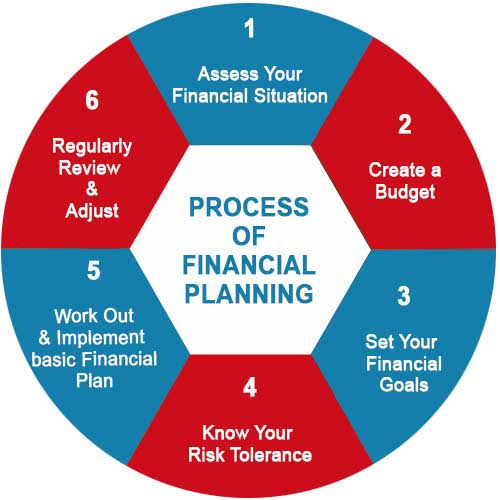You may think that financial planning is solely for the rich and people who have money to spare, but, you are wrong in thinking that way. You really do not have to be wealthy in order to reap the benefits of financial planning.
Financial planning is basically an ongoing process of evaluating your finances and reducing the stress levels when it comes to money, building a nest egg for your retirement, and supporting your current financial needs. Working with a financial advisor is always advisable, so you can come up with a concrete plan on how to manage your finances.
Financial advisors are typically professionals who help you critically examine where you are financially, show you the mistakes you may have made in the past, and give you advice on the next steps to take towards achieving financial maturity, which includes giving you some investment options.

Here are some reasons why financial planning is important with respect to different areas of your finances.
Your Income
When you have a solid financial plan, it becomes easier to manage your income. It will make you aware of how much money you have, the interests you earn, and the dividends you receive from your stocks and investments. This also helps you understand how much you can save and how much you can invest.
Expenses
Basically, people are supposed to spend money on their most basic needs, but mostly we find ourselves spending on wants and splurging on luxuries that are unimportant. Having a financial plan helps you avoid these wants and splurges. It also gives you an idea of how much to cut on, in case you go overboard one month. A financial plan will keep you in check.
Savings
You must always keep a record of your income against your expenses so you can tell how much you need to save. A good financial plan will help with this. You must always have some savings set aside because this is money that you will need in the future, especially after retirement. Planning for your savings also gives you an idea of how much money you will need in order to achieve your most pressing financial objectives.
Investments
A financial plan should also help you make the right investments as per your income. These should be good investments that are likely to provide an excellent return within a short time. A good financial plan should also have an investment portfolio filled with the right kind of risk-free investments for your future.
Taxes
With good financial planning, you are able to assess your income and have a clue as to how much you'll be paying in terms of taxes. This can be done at the start of a financial year, and it also helps you to pay your taxes on time.
Retirement
Most people actually start thinking about financial planning when they are almost reaching their retirement age, and this is wrong. When you are close to retirement, you may not have enough time to save for retirement. It is therefore important to have a solid financial plan in place that incorporates your retirement, which enables you to be ready when the time comes.
A good financial plan should have retirement goals that are specific enough to give you an idea as to how much you will have saved by the time you retire.
Here's how you can start.
- Have a list of your financial plans. – This can either be done by yourself or with the help of a financial planner.
- Collect all of the relevant data and put it together. – This is data about your annual income, your expenses, your financial objectives, all of your loans, the different investments you have, etc.
- Analyze the data. – Once you collect this data, take the time to analyze it so you can have an idea of your true financial position. You could also get rid of unwanted expenses that only make it hard for you to save more money.
- Come up with a financial plan. – Once you take into account all of the goals you wish to achieve, then you must have a plan in place to help you achieve said goals.
- Put the plan into action. – You must then put this financial plan into action. Goals do not make any sense unless they are achieved, and this means doing what is required regardless of the consequences to achieve your set financial goals.
- Monitor and review regularly. – It is important to constantly monitor your plans and the current position of your financial goals. If you haven’t achieved your goals yet, reevaluate your plans and come up with new strategies for achieving these goals.

Conclusion
Asking yourself why financial planning is important is the first step towards coming up with a solid plan that will help you in the future. It is not enough to just think about it; you must work towards it, as well.




